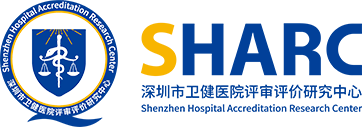- Introduction
- Governance
- Committees
- Milestone
About us
•Provide expert advice to SHARC’s Governing Board, Committees and Executives on all matters related to hospital accreditation;
•Develop evidence-based, people-centred and client friendly healthcare and hospital Accreditation Standards that are recognised nationally and internationally;
•Develop Accreditation Standards in compliance with (territory) national policy;
•Develop Accreditation Standards in alignment with advanced international Standards;
•Review and participate in the practice and promotion of the Standards.
•Review the surveyor training and development programme.
•Oversee the process, coordination and integration of external evaluation activities.
•Evaluate and review the outcome, efficacy and cost benefit of proposed activities, and act on the results.
•Recommend to the SHARC Board the introduction or rejection of proposed external evaluation activities and the continuation or cessation of existing activities having in mind the aforementioned efficacy and cost benefit analyses.
•Recommend to the SHARC Board the outcome of an accreditation decision.
•Ensure all products for external evaluation adhere to best practice and ethical principles.
•Evaluate and improve the accreditation and award systems;
•Design, ensure implementation and conduct periodic evaluation of a framework for making decisions on accreditation status.
•Approve pursuant to delegated authority from the SHARC Board:
Survey results and make appropriate awards decisions;
The principles and guidelines for accreditation and award decisions to ensure objectivity, fairness and consistency of all survey results;
External evaluation assessment methodologies
•Provide AAC progress reports to the SHARC Board at meetings.
•Oversee the development of the Risk Management Framework including the risk register and the incident reporting policy.
•Oversee the development of the complaints policy.
•Monitor the risk register every three months. Report any high-risk activities and related improvement recommendations to the Board.
•Monitor the trended analysis of all incidents and complaints including follow up actions.
•Oversee the quality improvement program including the schedule of audits.
•Oversee the internal audit functions of SHARC
•Provide RQAC progress reports to the SHARC Board at meetings.



